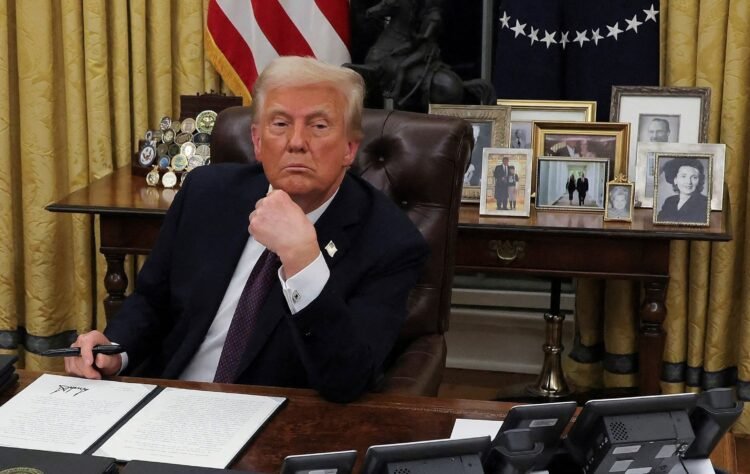A federal judge in Boston is set to review a request from 18 state attorneys general on Friday, seeking to block President Donald Trump’s executive order that eliminates birthright citizenship for children born in the U.S. to parents who are in the country illegally.
This hearing follows a decision by a federal judge in Seattle on Thursday, who halted the order and criticized the administration’s approach to the Constitution, arguing that Trump was attempting to alter it through executive action. Earlier in the week, a Maryland federal judge also issued a nationwide suspension of the order in a similar case.
In the Boston case, attorneys general from multiple states, along with the cities of San Francisco and Washington, are urging Judge Leo Sorokin to grant a preliminary injunction. They argue that birthright citizenship is a fundamental constitutional right and that Trump lacks the authority to revoke it. Calling the order a “blatantly unlawful attempt” to strip citizenship from thousands of American-born children based on their parents’ immigration status, they warn that it would also deprive states of crucial funding for essential services such as foster care, healthcare for low-income children, and early intervention programs for infants, toddlers, and students with disabilities.
At the core of these legal battles is the 14th Amendment, ratified in 1868 in the aftermath of the Civil War and the infamous Dred Scott Supreme Court decision, which had ruled that Scott, an enslaved man, was not a U.S. citizen despite residing in a free state.
The Trump administration argues that children of noncitizens do not fall under U.S. jurisdiction and, therefore, are not entitled to automatic citizenship. However, state attorneys counter that the 14th Amendment does apply to them, a position affirmed by legal precedent. Notably, the 1898 Supreme Court ruling in United States v. Wong Kim Ark established that U.S. citizenship is automatically granted to nearly all children born on American soil, with exceptions only for children of diplomats, enemy occupiers, individuals born on foreign ships, and members of sovereign Native American tribes.
The United States is one of roughly 30 countries that recognize birthright citizenship under the principle of jus soli or “right of the soil.” Many of these countries are in the Americas, including Canada and Mexico.

 English
English



























































